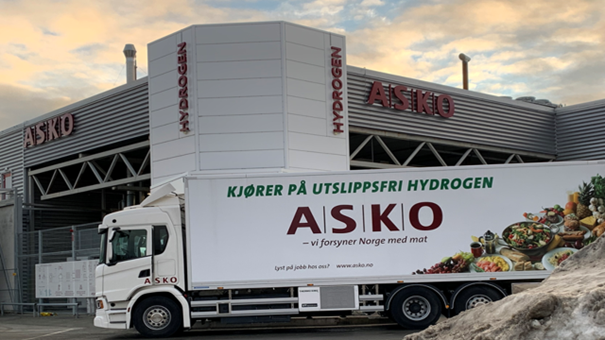Hydrogen and hydrogen technology have been used at large scale for over 100 years in various industries. Hydrogen’s role as an energy carrier for zero-emission transportation has received increased attention over the last decades. The development is currently gaining momentum, and hydrogen has already been implemented in several different segments within the transportation sector (e.g., buses, trucks, ships and trains).
In order to reach the zero emission targets by 2050, it is recognized at political level that several sectors will require the use of hydrogen. Over the last 20 years, hydrogen has been a strategic focus area in SINTEF. This prioritization has enabled us to build substantial competence and experience.
Hydrogen, electricity and biofuels complement each other, and these alternatives to fossil fuels will ensure a climate neutral transportation sector. This requires easy access to hydrogen at an affordable cost, thereby fostering early implementation of vehicles and vessels.
For more than 10 years, SINTEF has actively worked with industry to ensure early implementation of hydrogen technology, especially within transportation. The activity has led to initiatives and projects both within establishing infrastructure and development and testing of vehicles and vessels.
SINTEF works within these topics:
- Solutions for efficient production and distribution of hydrogen to transportation
- Development of next generation fuel cells (cost, lifetime and efficiency)
- Integration of fuel cells into hybrid energy systems for optimal energy utilization
- Evaluation of alternative propulsion solutions for zero emission transportation
- Techno economic evaluation and life cycle assessment as basis for decision support
- Evaluation of value chains with respect to the UN’s sustainability goals and value creation
Typical assignments for SINTEF:
- Development of novel and improved materials for electrolysers and fuel cells
- Assembling components for advanced and innovative system solutions
- Characterizing electrochemical systems under operation (degradation and lifetime/durability)
- Comparing modelling/simulation of propulsion concepts with experimental results
- Optimization of components' size in hybrid drive trains (BC, H2 tank, battery)
- Develop control systems and balance of plant for hydrogen vehicles and vessels
Who are our customers?
- Manufacturers of electrolysers and fuel cells
- Energy and technology companies with a focus on systems
- End-users within the maritime sector (e.g., yards and shipping companies)
- End-users of hydrogen within both the public and private sector (e.g., counties, municipalities, transportation companies, harbors, airports)

